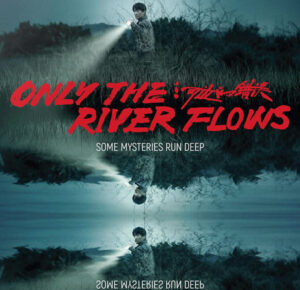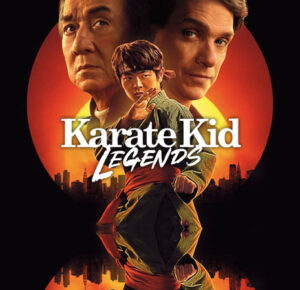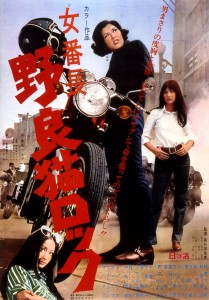
“From Vegas to Macau II” Chinese Theatrical Poster
AKA: The Man from Macau II
Director: Wong Jing
Co-director: Aman Chang
Cast: Chow Yun-fat, Nick Cheung, Carina Lau, Shawn Yue, Angela Wang, Michelle Hu, David Chiang, Kimmy Tong, Philip Keung, Wu Yue, Jin Qiaoqiao, Kenny Wong, Derek Tsang, Connie Man, Rebecca Zhu
Running Time: 110 min.
By Paul Bramhall
The 2014 Lunar New Year movie From Vegas to Macau was far from perfect. It featured a droll performance by Nicolas Tse, an irritating Chapman To, and a wasted action role from Philip Ng. However it also had its pluses, the biggest of which was Chow Yun Fat returning to a Wong Jing directed gambling flick for the first time since Return of the God of Gamblers, made a whole 20 years earlier. Chow, who spent most of those 20 years starring either in Hollywood productions which should have been beneath him, or cardboard cutout period epics from the mainland, couldn’t have had a more welcome return to the world of Hong Kong movies. While From Vegas to Macau was very much a hit and miss affair, just seeing Chow doing his thing front and center in a Hong Kong movie was enough to make it enjoyable.
Wong Jing, never one to let go of a winning formula, sure enough embarked on throwing together From Vegas to Macau 2 in time for the 2015 Lunar New Year. With the original relying almost solely on Chow’s charm, while I like him just as much as the next guy, the prospect of watching another 100 minutes of Chow hamming it up and little else would be stretching even his biggest fans patience. The second installment also does away with most of the supporting cast. Nicolas Tse, Chapman To, and Philip Ng are all gone. Unfortunately so is Jing Tian, who was one of the high points and had good chemistry with Chow. Thankfully though, the new cast ensures none of them are likely to be missed. From Vegas to Macau 2 surrounds Chow with plenty of local Hong Kong talent in the form of Nick Cheung, Shawn Yue, Carina Lau, and even Shaw Brothers legend David Chiang gets a worthy role.
The sequel is also noteworthy as being the Shaw Brothers studio return to feature length filmmaking. Sporting an updated logo for the new millennium, the glossy opening credits provide a worthy accompaniment to the legendary studios come back. It also brings me great relief to say that so does the rest of the movie. From Vegas to Macau 2 does a lot to rectify the faults of its predecessor, and it does so in the way you’d expect a HK Lunar New Year movie to – more action, more spectacle, and more wacky comedy. It should be noted that reviewing any Lunar New Year movie comes with a certain amount of caveats, these productions are never intended to be judged as serious movies, rather they’re supposed to be raucously fun, star filled slices of entertainment for local audiences to enjoy during the New Year festivities.
Previous examples of Lunar New Year productions include the Aces Go Places series, many of the My Lucky Stars movies, Millionaire’s Express, and into the 1990’s most of Jackie Chan and Stephen Chow’s movies were released to coincide with the Lunar New Year. Cohesive storytelling, well developed characters, and if the movie is going to be remembered a few months later are all entirely disregarded when it comes to this genre. Their goal is to entertain, and with this in mind, they should also be reviewed from this perspective.
On the basis of the above, there’s not a lot to dislike about From Vegas to Macau 2. From the moment it starts a breakneck pace is set up of out there humor and random actions scenes, and neither really let up for the duration of the run time. Relaxing with wine on a boat is disturbed by pistol wielding female assassins on jet skis and flyboards (imagine a water powered jet pack, here the first time I’ve seen them used in an action movie), a huge robot with a machine gun arm decimates the interior of an apartment, and gold plated cards are thrown to disarm the enemy. Viewed as a legitimate piece of cinema, From Vegas to Macau 2 is completely stupid and illogical. Viewed as an entertaining way to spend 100 minutes of your life, you could do a lot worse.
It almost feels like a review would be incomplete without a brief plot summary, but really, here the plot is so thin (even in comparison to its predecessor!) that it’s hardly worth mentioning. In a couple of lines though, the evil organization D.O.A. is back, and they have their sites set on Nick Cheung, a former employee who stole a ton of their cash. He’s now on the run with his child daughter, however Interpol are also on his tail, led by Shawn Yue, playing a character who happens to be Chow’s godson. Yue asks Chow to help, and through a series of events Chow ends up buddied up with Cheung in Thailand, which leads to various comedic situations and action. Okay, that was three lines.
Carina Lau also stars as a love interest for Chow, and fans of Taylor Wong’s 1987 flick, Rich and Famous, will no doubt get a kick out of the fact that scenes from the movie, which also starred Chow and Lau as a couple, are used to explain their back story. Despite all the comedic shenanigans, Chow and Lau’s relationship is surprisingly heartfelt, and serves an important part in the finale, delivering some welcome emotional weight to close out proceedings. The same applies to Nick Cheung’s relationship with Yolanda Yuen, and despite their scenes together being remarkably brief, they effectively convey a worthy level of emotion. Although arguably it shouldn’t feel earned considering all the hijinks surrounding such scenes, the quality of their performances somehow make it work.
From Vegas to Macau 2 really excels though when it comes to the action, and it crams in a lot of it. From a raid on a safe house in Thailand 30 minutes in, which contains a fantastic mix of live explosions and stunts, combined with some nice use of GoPro shots, to a Muay Thai match that has one of the most unlikely pairings you’ll ever see – a 60 year old Chow Yun Fat vs. Ken Lo. The match is played for laughs, and provides plenty of them, as Chow hilariously cramps up when trying to throw a kick, and uses stalling tactics which bring to mind Stephen Chow in the finale of Love on Delivery. For those looking for some real toe to toe action though, Shawn Yue gets to briefly throw down a couple of times against Wu Yue, one while handcuffed that sees Wu also agree not to use his hands, and the other in an airplane cabin not dissimilar to a scene in The Transporter 2.
The action is all complimented by the onscreen pairing of Chow and Cheung. Both are great actors, and here they bounce off each other well, whether it be backing each other up in a dodgy Thai casino, or surrounded by a group of hungry crocodiles. From Vegas to Macau 2 is interestingly the second time Cheung has found himself confronting crocodiles while in Thailand, the first being Benny Chan’s awful 2013 action flick The White Storm. The chemistry between the two unintentionally makes the movie a few notches better than it would be had it been another actor left to play Chow’s foil (Nicolas Tse we’re looking at you).
Throw in a bunch of on the mark jokes that reference everything from Donnie Yen, Lost in Thailand, The Walking Dead, Unbeatable, and even Korean drama He Who Came from the Stars, and From Vegas to Macau 2 not only captures the spirit of those 80’s HK ‘everything and the kitchen sink’ movies that we love so much, it genuinely feels like one. For those who have seen the original, the closing couple of minutes wrapped up with an interesting cameo, and the sequel does the same. While last time a few people were left scratching their heads, this time it’s a safe bet that with the closing shot, anyone who counts themselves as even a casual fan of Hong Kong cinema, will most likely be left grinning from ear to ear.
Paul Bramhall’s Rating: 8/10























Be the 1st to Comment